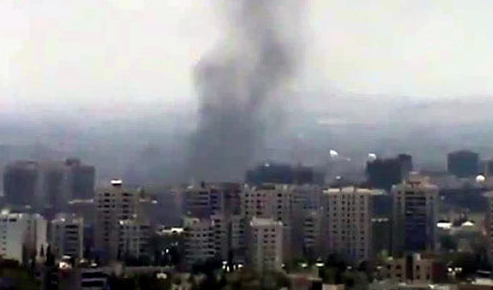Syrians displaced by the violence gripping their country are now facing the arrival of winter, with temperatures dropping and the severity of conditions increasing. The Order of Malta’s relief service for humanitarian aid, Malteser International, will provide warm clothes for 1,000 children and heating stoves for 500 families in the Syrian cities of Homs and Hama, among the coldest cities in Syria. “Thousands of people there are living in unheated school buildings, sleeping on the floor, without blankets”, explains Roland Hansen, Head of the Asia & Haiti Department of Malteser International.
In addition, more than 15,000 displaced people in Aleppo, Damascus, Hama and Homs will receive critical aid in the form of start-up and hygiene kits, including blankets, mattresses and kitchen and sanitary essentials. These cities have been stage to heavy fighting between government and opposition forces. Many houses have been destroyed. “With winter approaching, families are quickly running out of resources, since the traditional family support system is already overstretched”, Hansen adds.
Malteser International’s partner organisation International Blue Crescent is able to operate within Syria and has conducted home visits and identified the neediest families to receive emergency relief. It can therefore coordinate the distributions in Aleppo, Hama and Homs, in addition to Damascus, where teams have already given emergency kits to 1,200 families over the past three months.
The Lebanese Association of the Order of Malta continues to run, supported by Malteser International, a socio-medical centre in Lebanon where Syrian refugees can receive free medical treatment. Almost 600 refugees have received treatment so far. Starting in November, 500 refugees will be given emergency relief kits and winter clothes. “Many of the refugees have found jobs doing seasonal work in agriculture and construction”, Hansen says. “Come winter, they will be unemployed and even more in need of help”.










